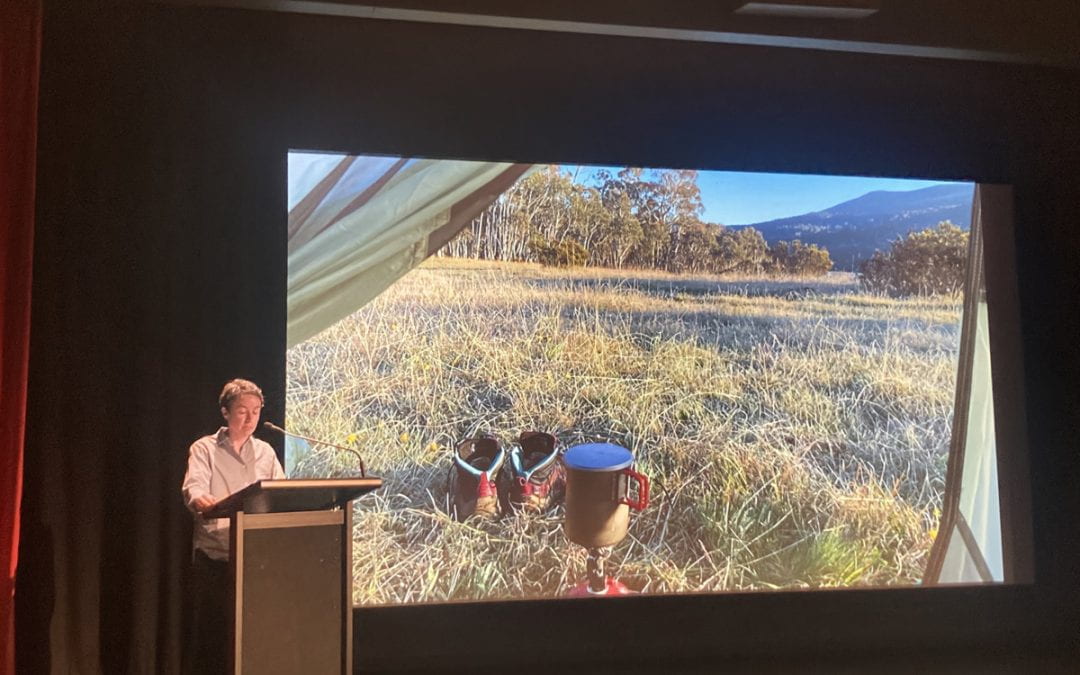Bureaucracy has its own statistical definition of “the regions”, but what do we see when non-metropolitan places are viewed through other lenses?
This question was at the heart of a four-day conference called “Recentring the Region” held earlier this month at RMIT in central Melbourne, and attended by Dr Jennifer Hamilton, a UNE Senior Lecturer in English and co-organiser of the event.
“The program was about regions broadly understood, regions as in non-metropolitan places but also as Country, as bioregions, political regions, geographical regions”, Dr Hamilton said. “The metropolitan/regional divide is a meaningful way of understanding the world, and informed some of the presentations, but to try to flip it and recentre the region does not mean simply swapping focussing on a region for city. It’s an inherently false dichotomy.”
Dr Hamilton is president of the Association for the Study of Literature, Environment and Culture (Australia and New Zealand) (ASLEC-ANZ), which co-hosted the conference with the Association for the Study of Australian Literature (ASAL). A large organising team comprised of academics from universities including Deakin, RMIT, La Trobe and USQ collaborated to bring the event together.
The opening night of the conference featured a series of awards for poets and scholars, including the prestigious Australian Literary Studies Gold Medal which this year was awarded to Gudanji writer Debra Dank for her book We Come with the Place. The awards were accompanied a keynote lecture by award winning Yuwaalaraay musician and writer Nardi Simpson, who explored song as the first literature of this continent. Other artists, performers and writers took the podium alongside literary scholars & cultural theorists, historians and critics across the four days. Among them was HASS PhD Candidate, Coralie Sanderson, with the presentation “It’s only Gothic if you see it that way: Tasmanian melancholia as cultural addiction’.
The keynotes and plenary panels were recorded and are freely available on the conference website: https://www.regionsconference2023.org/
The conference prompted Dr Hamilton to reflect on UNE’s position as a regional university and what makes it unique.
“It was fun to travel to Melbourne and reconnect with colleagues after COVID, but it also felt really different doing my work in the city; the city is exciting but it also shapes how you go about academic work.”
“One of the things I appreciate most about living and working in Armidale is the relationship I have with place and people; it’s a bit slower, I feel more grounded and connected to community and different energies in the land and sky. I’ve appreciated learning about what this means from local Anaiwan folks too.”
“Also, in contrast to the city, the night is darker and the world is a bit quieter; there is more space to think. Given how few people live in the regions in comparison to the cities Australia, working at UNE presents an incredible opportunity for students and scholars to be able to understand their work in ways not readily accessible to the majority.”
Dr Hamilton is part of the editorial board of Swamphen: A Journal of Cultural Ecology which will publish a special issue based on the conference. She hopes that the research shared at the gathering will spark new collaborations and opportunities in the wake of the pandemic.
Image: Outgoing ASAL President Dr Julianne Lamond (ANU) presents High stakes country: region, nation and writing in the Australian Alps, a paper about reading regional places while walking. Jennifer Hamilton.



Recent Comments